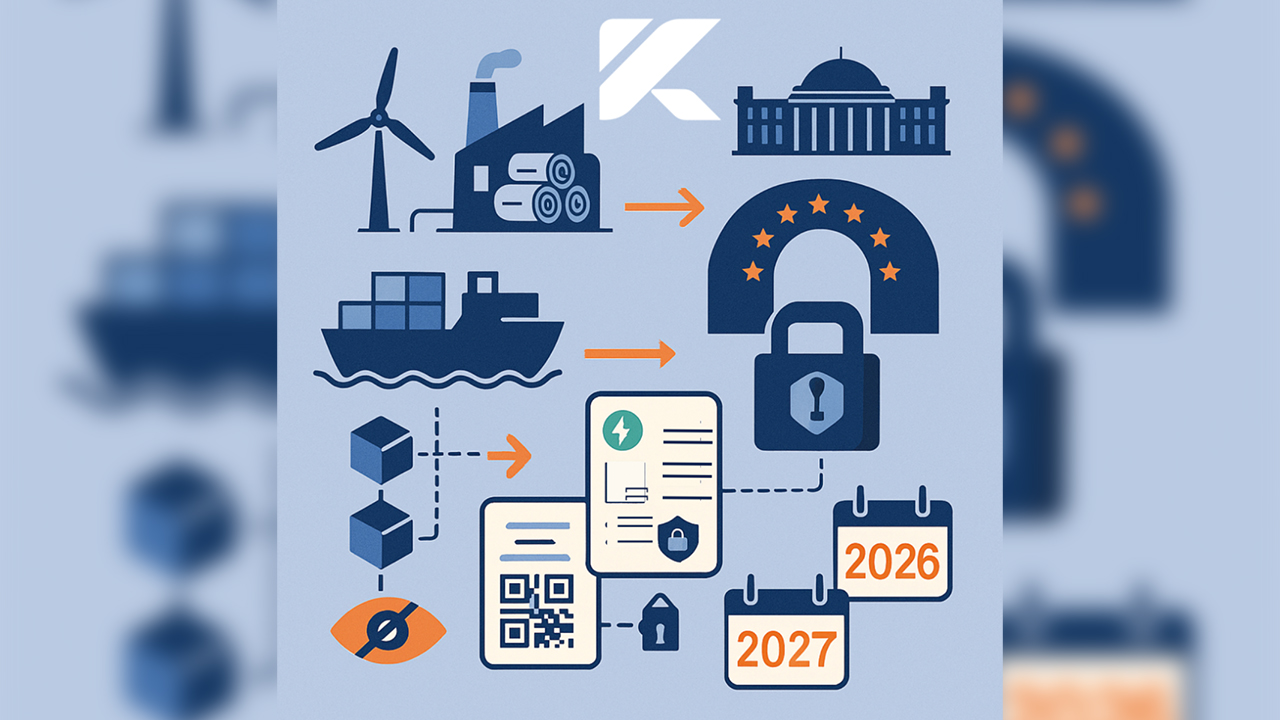The Carbon Border Adjustment Mechanism (CBAM) of European Union will enter its compliance period in 2026, encompassing high carbon leakage risk products such as steel, cement, aluminum, fertilizers, hydrogen, and electricity. Reporting obligations during the transition period are already in effect, and the demand for accounting and verification of embedded emissions in imports is continuously rising. Recently, the EU has simplified the implementation rules and optimized the timeline, delaying the certificate sale until February 2027, but the compliance obligations for imports in 2026 will be applied retroactively. EnergKlette has launched a data and certificate foundation aimed at supply chain scenarios, supporting enterprises in forming a “consistent, verifiable, and cross-system transferable” evidence chain in green electricity procurement, Scope 2 emissions reduction, and product carbon footprint accounting.
The foundation is structured around four layers: “Measurement – Proof – Settlement – Audit.” The measurement layer connects smart meters with edge measurement gateways, recording renewable electricity at legally mandated time granularity; the proof layer generates digital green certificates bound to source and spatiotemporal tags, ensuring the transparent traceability of each kilowatt-hour of electricity to its corresponding carbon reduction; the settlement layer provides account period aggregation and multi-party sharing rules; the audit layer outputs summaries and traceability paths compatible with third-party verification, facilitating responses to CBAM and ETS audit sampling.
In terms of institutional alignment, the plan references the progress of ETS reforms under the “Fit for 55” framework, focusing on the differences in data standards and price signals between the existing ETS and the upcoming ETS2, while reserving mapping interfaces for “quota price trajectory – electricity consumption timing – product marginal emissions.” Enterprises can bind green electricity consumption to production processes, forming on-chain proof of “production batch – energy consumption – emissions” at the product level, providing a consistent basis for cross-border customs declaration and customer disclosure.
EnergKlette adopts a “local storage, on-chain proof” design for privacy and compliance, avoiding excessive leakage of original business data; it interfaces with smart meters to accelerate deployment and align with digital transformation policy directions, alleviating the pressure on enterprises to build their own systems. External exchanges publish summaries and verification endpoints through standardized interfaces, allowing trade partners and auditors to verify the matching degree of certificates and electricity declarations with zero knowledge, reducing the costs of repeated verification. The foundation states that this platform will open pilot projects to multinational manufacturing, data centers, and energy-intensive small and medium-sized enterprises, assisting them in establishing integrated capabilities of “traceable green electricity – verifiable carbon data – trade documents that can be connected,” thereby reducing compliance uncertainty and capital occupation.

